Submitted by WA Contents
Light Earth Designs' parabolic Cricket Stadium addresses to cherished hilly topography of Rwanda
Rwanda Architecture News - Apr 29, 2019 - 05:59 19422 views
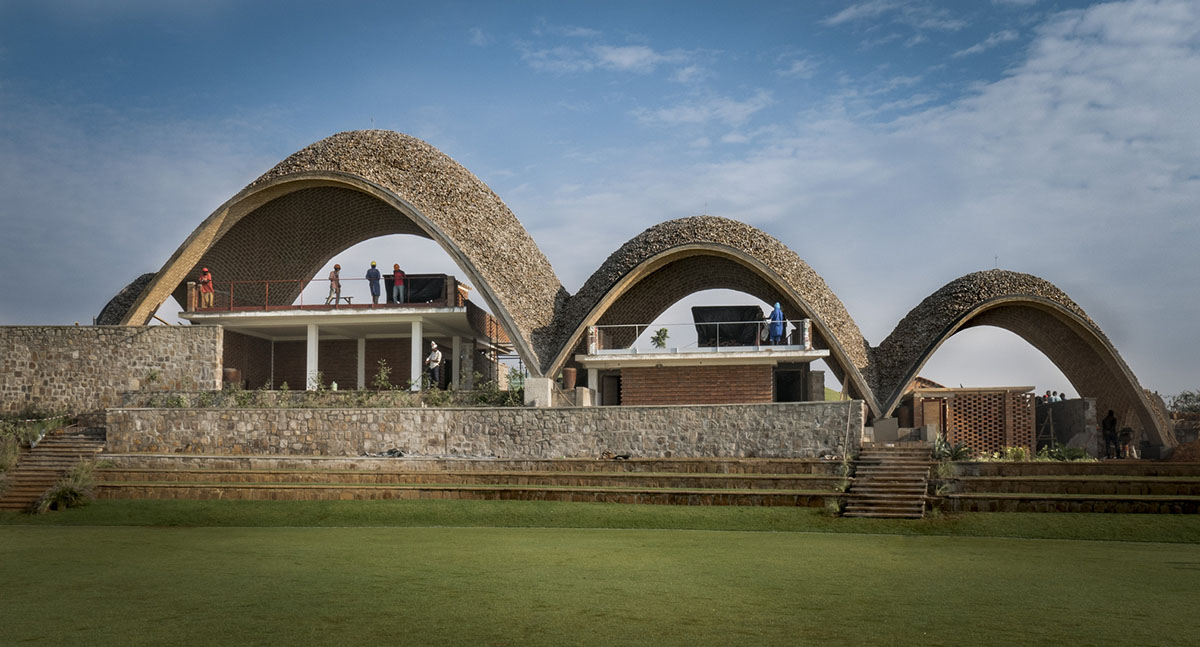
Light Earth Designs designed a cricket stadium by using three vaulted structures addressing low-cost building economies through local labor-intensive construction techniques. The structure was entirely made by Rwandans by using Rwandan materials.
Situated at a stadium in Kigali, Rwanda, the project was realized for the Rwanda Cricket Stadium Foundation over a 5-year period on how Rwanda can transition from an agriculture-based economy to development using local labor-intensive construction techniques, thereby avoiding imports, lowering carbon, and building skills and economies.
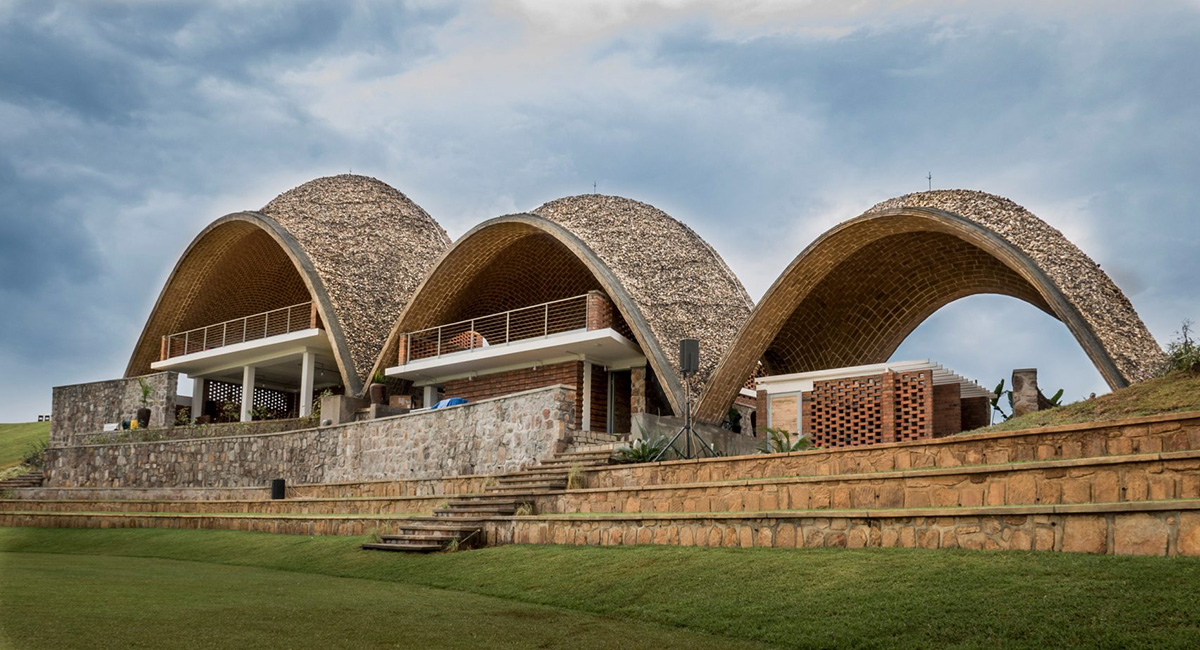
Named Rwanda Cricket Stadium, the local people built these vaulted roofs by using Mediterranean tile-vaulting (using compressed soil-cement tiles) to a moderate seismic context by using geogrid reinforcing in the layers and bearing the springing points of the curved vaults on the ground.
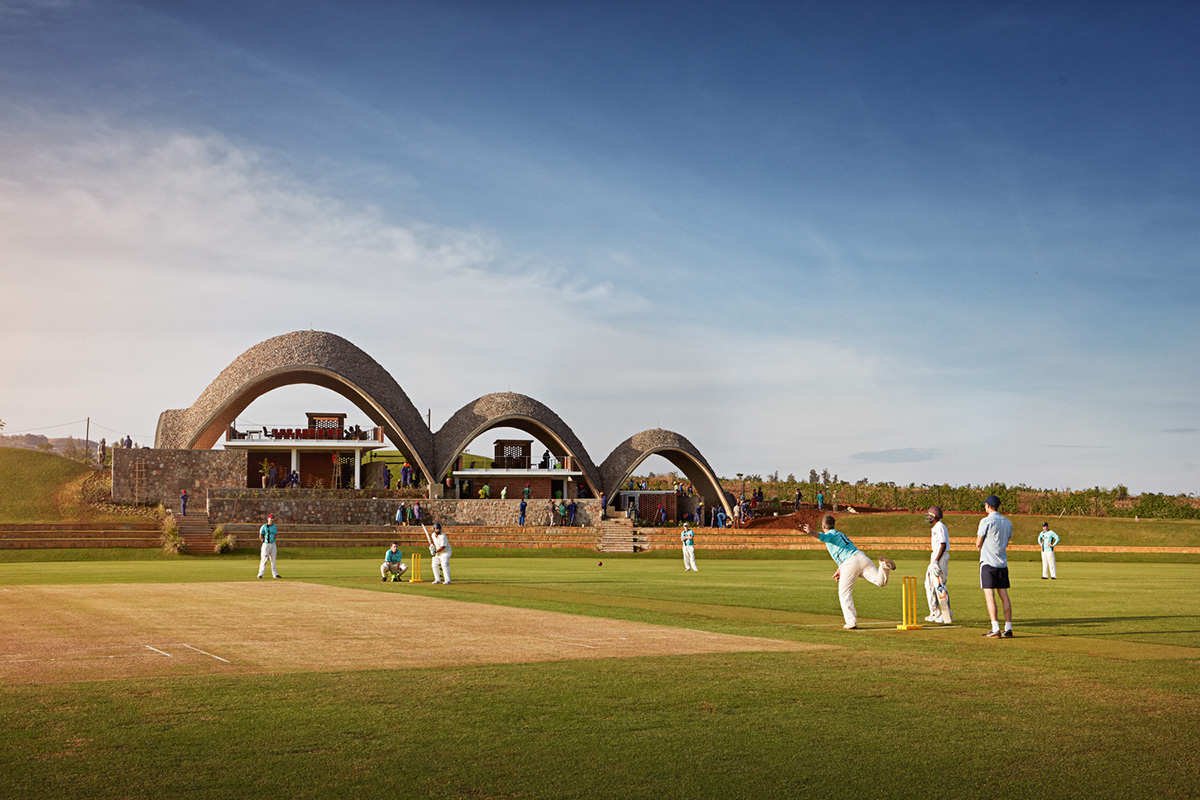
Image © Jonathan Gregson
"The vaults follow the natural resolution of forces toward the ground, closely mimicking the parabolic geometry of a bouncing ball and evoking the cherished hilly topography of Rwanda," said Light Earth Designs, known as pioneer on the development of Sustainable Technologies and Green Urban Design.
"The masonry vaults are completely in compression allowing the use of a simply layered thin shell composite of low strength tiles. The tiles are produced on site from the local soil by low skilled and skilled locals - hydraulically pressed with a small addition of cement and do not require firing," added the firm.
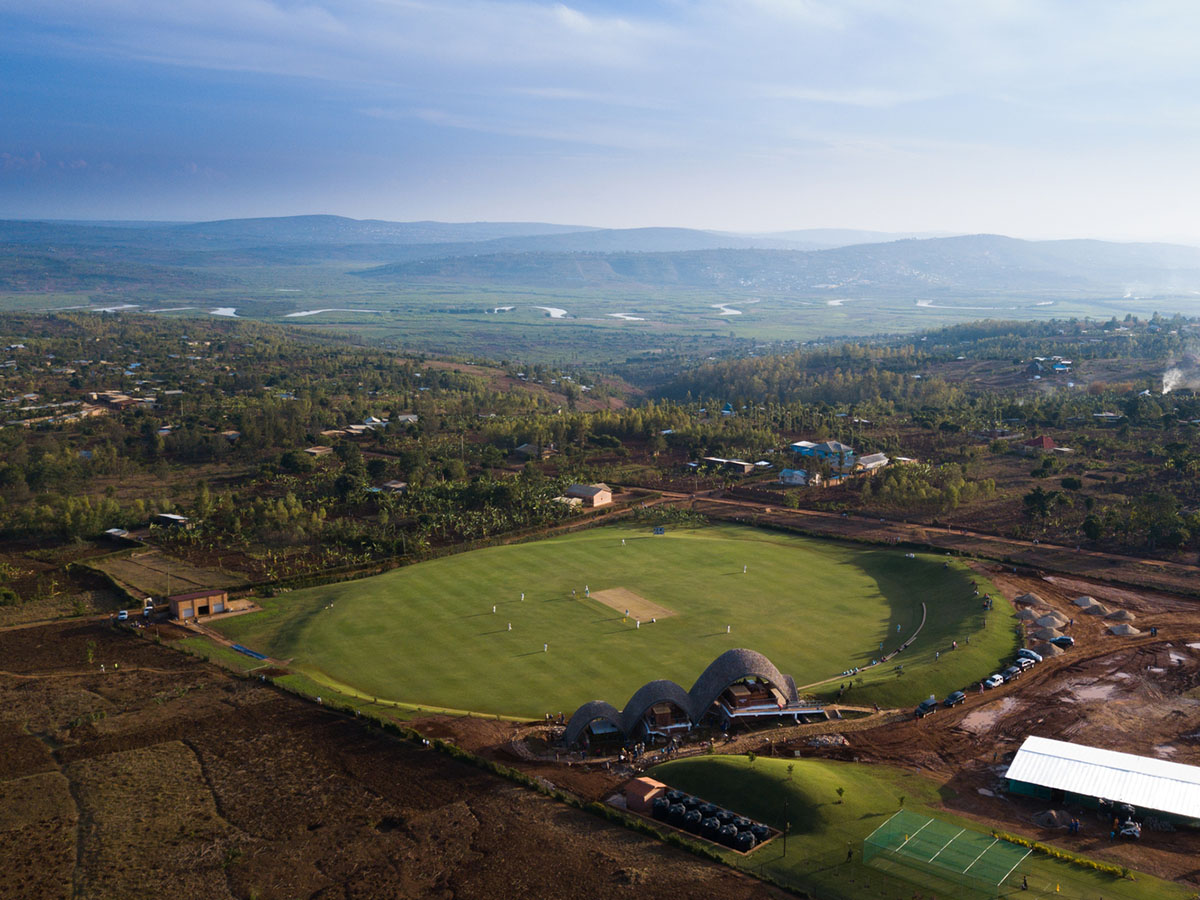
Image © Paul Brodie
They are laid in layers onto a temporary timber skeleton which spans up to 16m. Geogrid is added to give some seismic protection, developed by research in architecture and engineering at Cambridge University. The shells are waterproofed then topped with local broken granite, blending into the natural palate while the granite adds weight and stability.
Simple, efficient and thin concrete tables are inserted into the vaults, providing space for the more enclosed functions: the service areas, the changing rooms, an office and a restaurant.
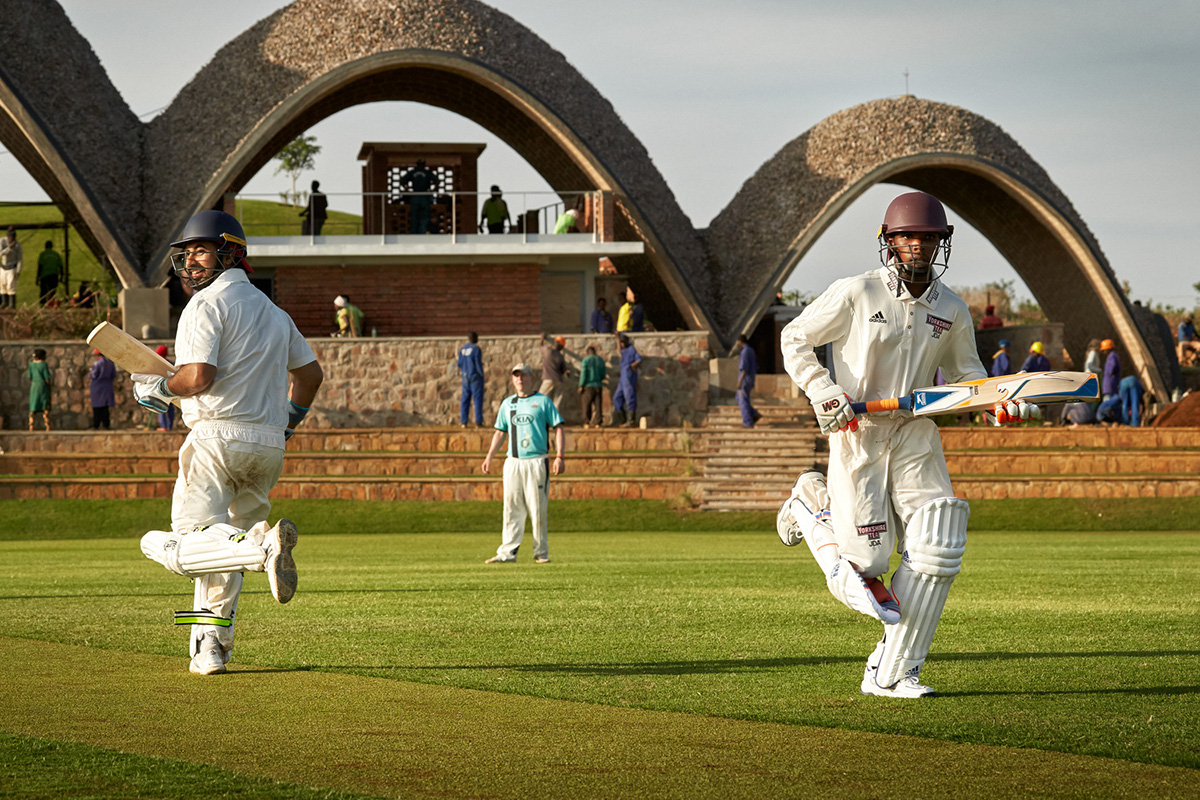
Image © Jonathan Gregson
These tables are topped with natural Rwandan agro-waste-fired tiles made of commonly found wetland clay. The open mezzanines - a bar and a clubhouse - enjoy wonderful raised clear panoramic views over the Oval and wetland valley beyond. The architects used bricks to define edges and spaces - often laid in perforate bond - allowing the breeze and light to filter through.
These bricks are sourced from enterprises set up by Swiss NGO SKAT Consulting and are also low carbon agro-waste-fired bricks using high-efficiency kilns, further reducing energy and carbon. Waste stone from Rwandan granite floor and worktops are used for flooring.
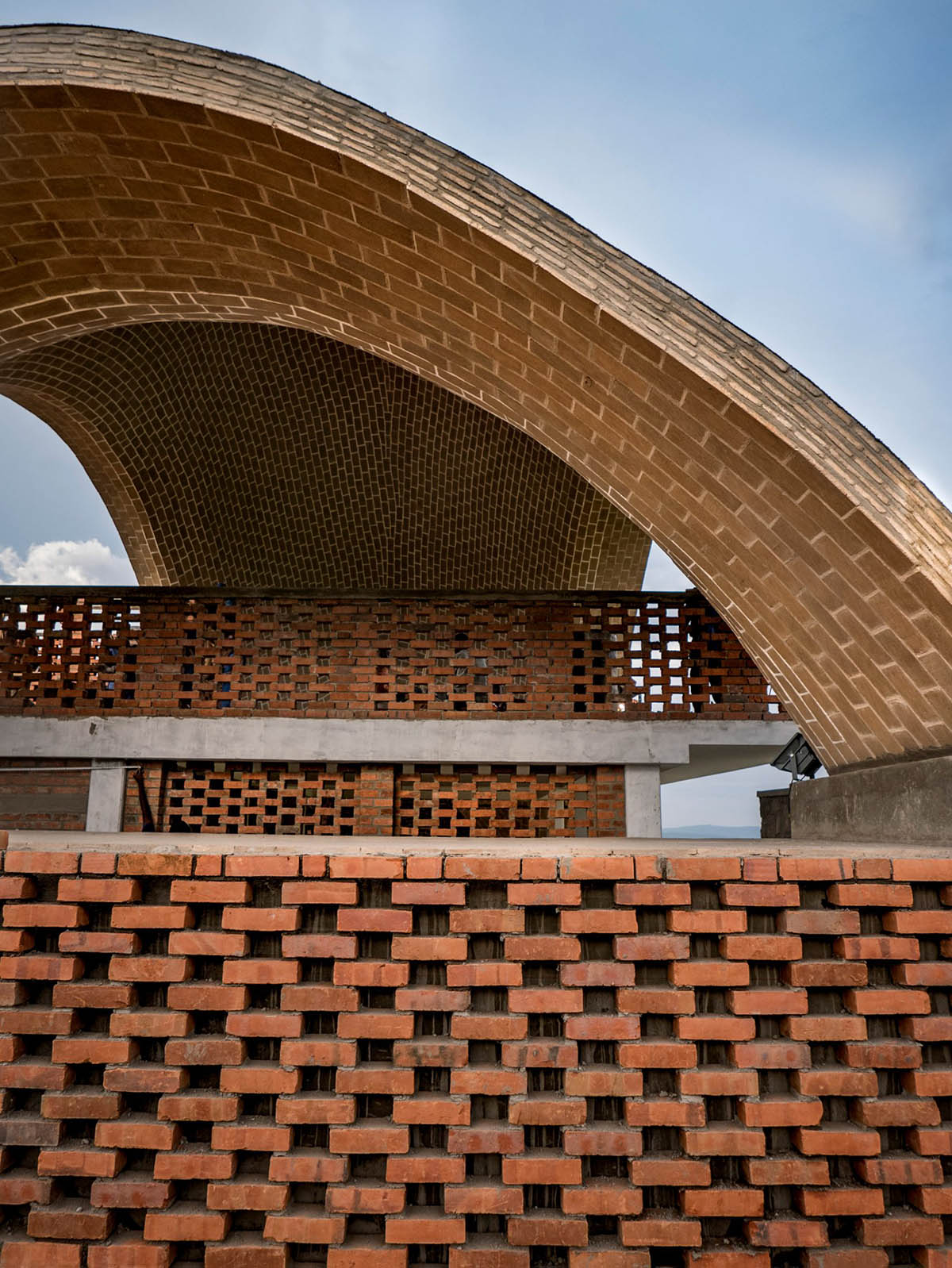
"The plywood rectangles used to press the tiles are reused as countertops while timber and plywood from the vault guide work are made into joinery and doors, ensuring that a maximum of waste material goes into primary production," added the architects.
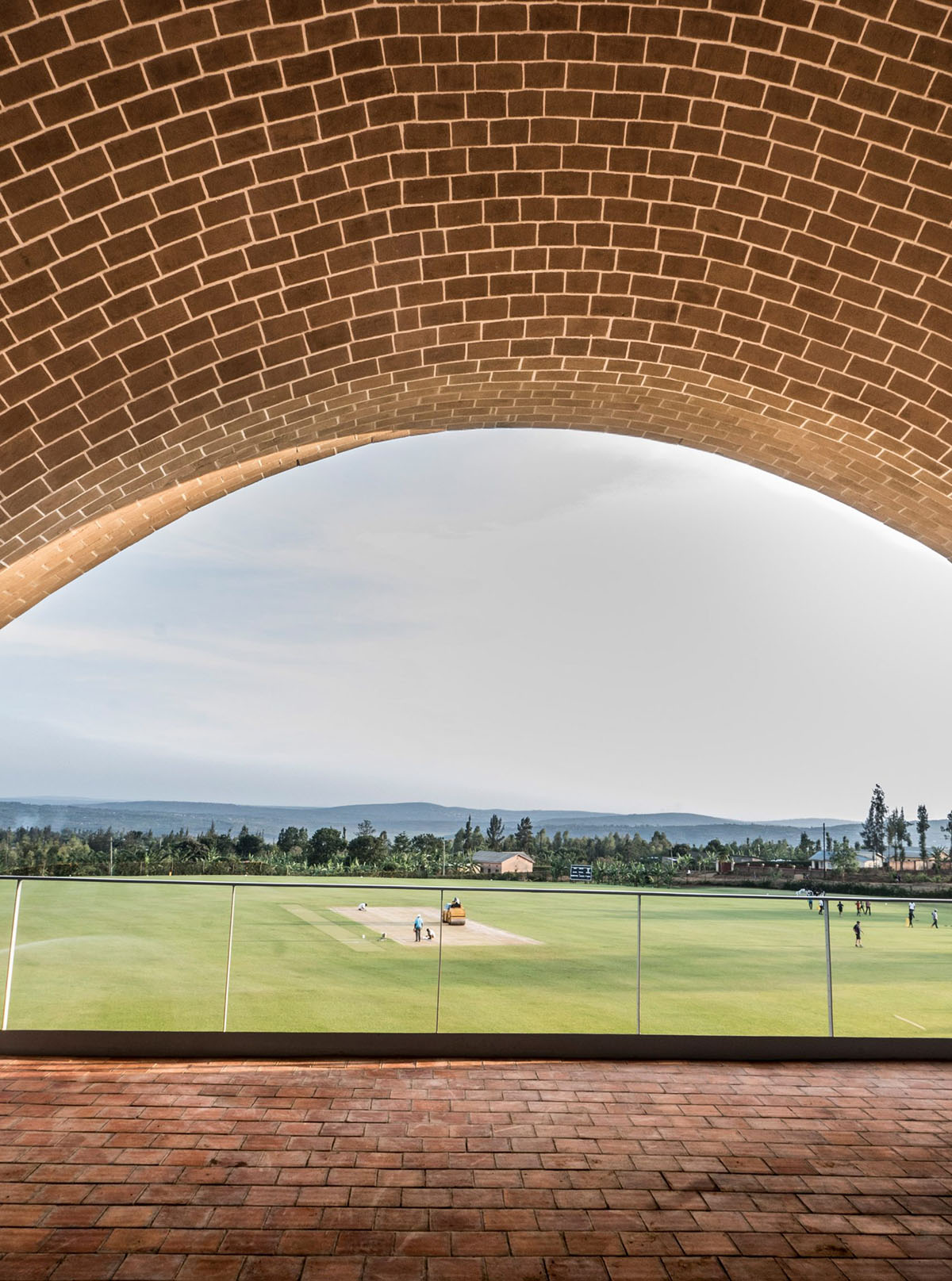
Local slate is configured to allow rainwater to permeate and infiltrate the soil. Retaining walls are either local granite boulders or are hollow to encourage planting The banking creates a wonderful natural amphitheater with great views of the pitch and wetland valley beyond.
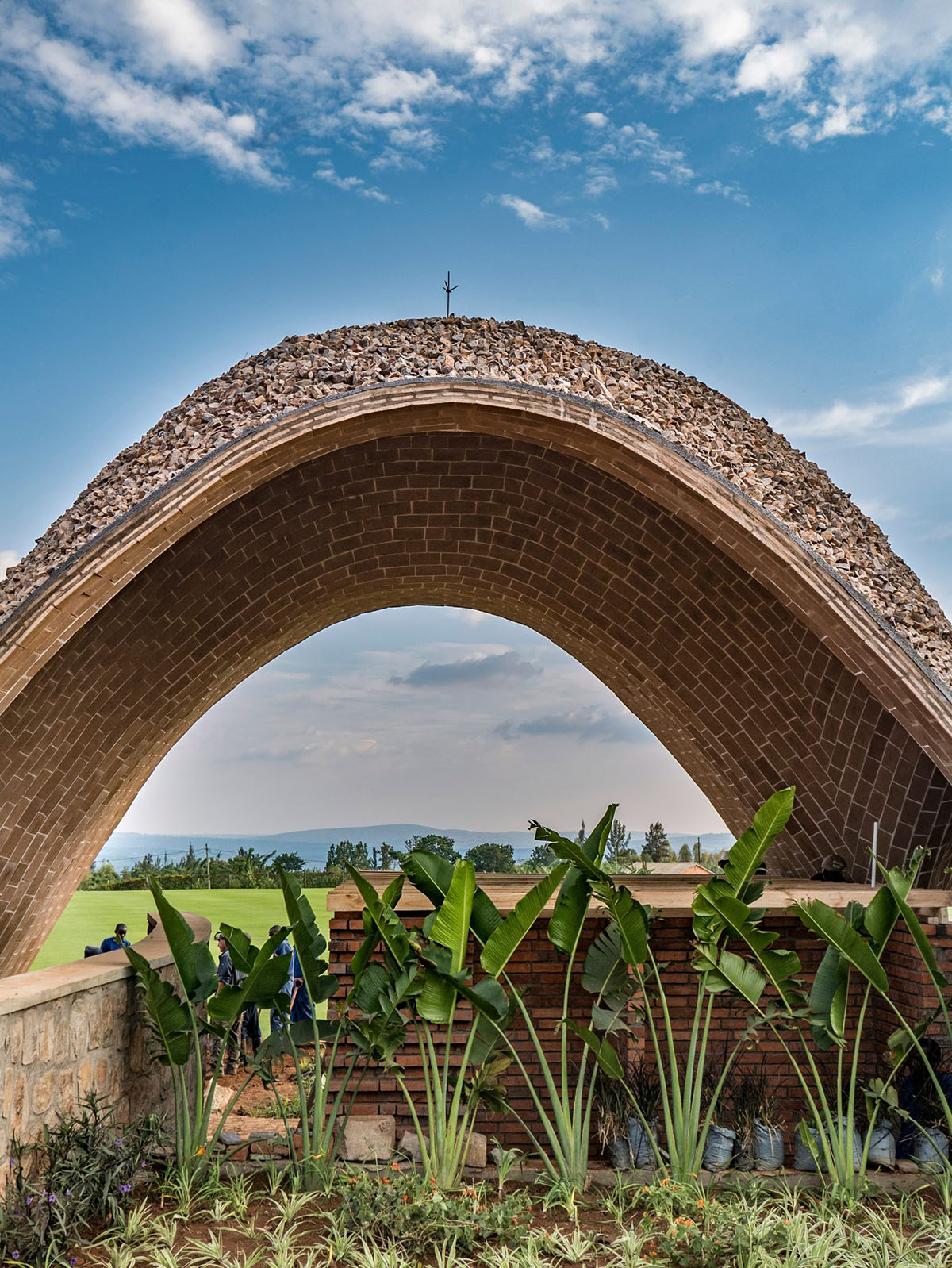
Whilst the language of the building speaks about progression and dynamism through extreme structural efficiency, the materials speak of the natural, the handmade and the human.

"The imperfections are celebrated - they are human and beautiful - and when combined with the layering of natural textures the building becomes imbues and celebrates this wonderful place," the architects continued.
British architecture firm Light Earth Designs combines architecture, urban design and engineering to explore sustainable design solutions that contribute to societies future development.
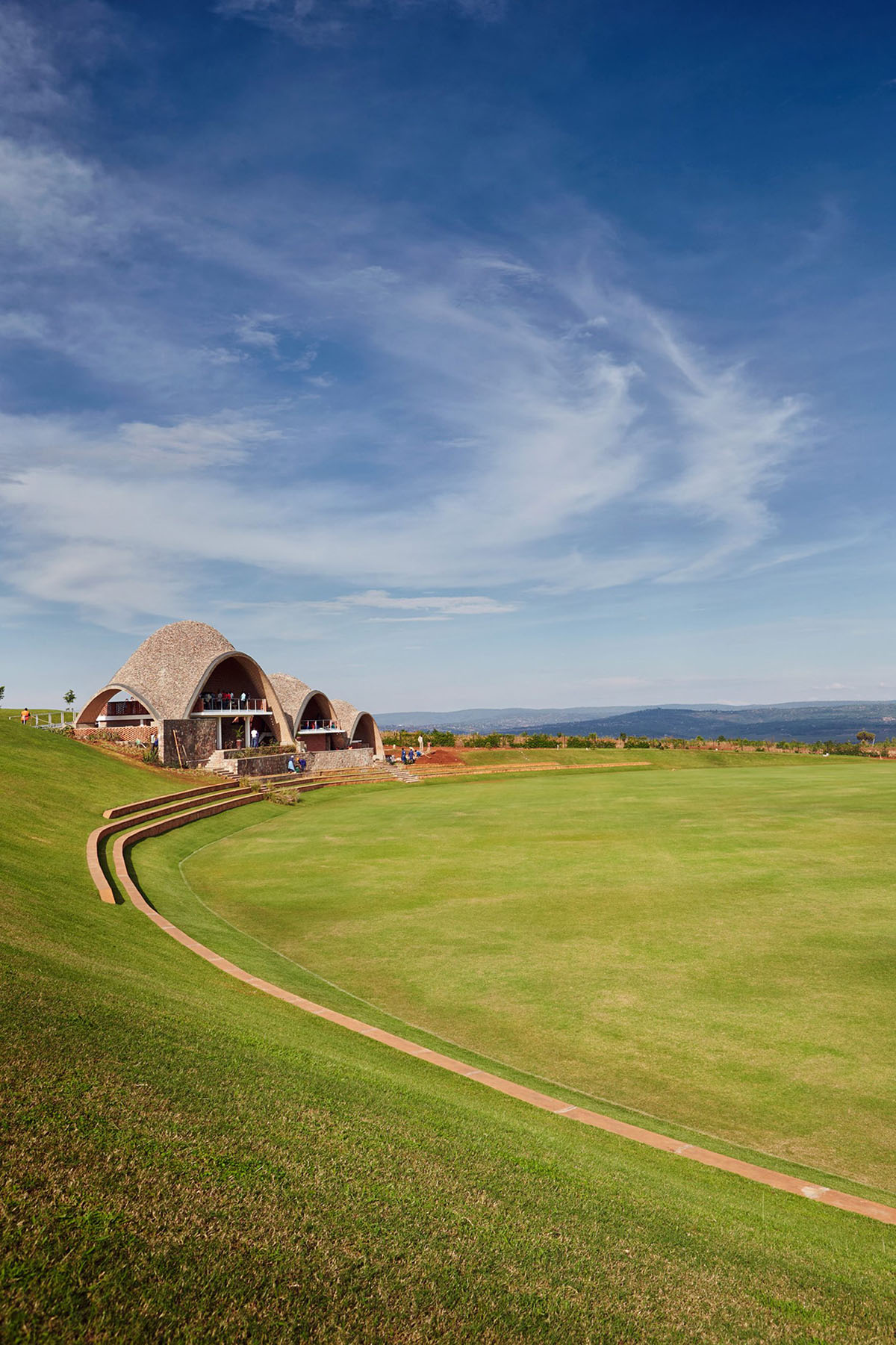
Image © Jonathan Gregson




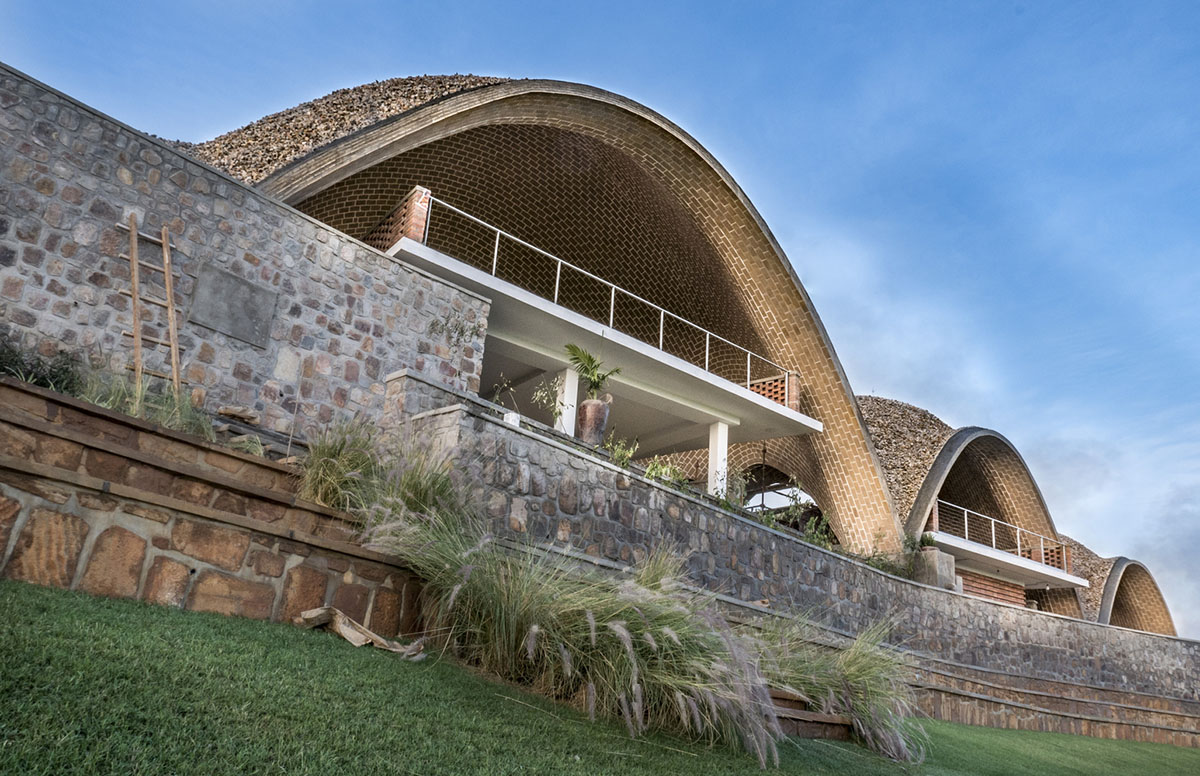


Site plan
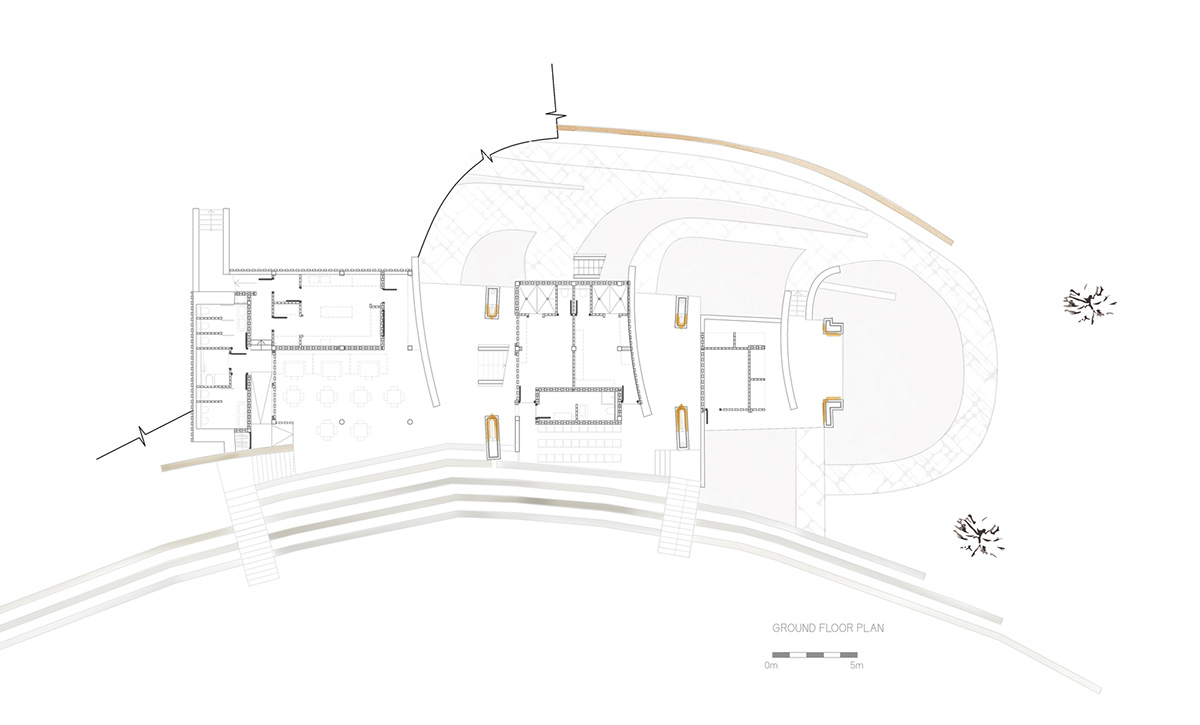
Ground floor plan

First floor plan
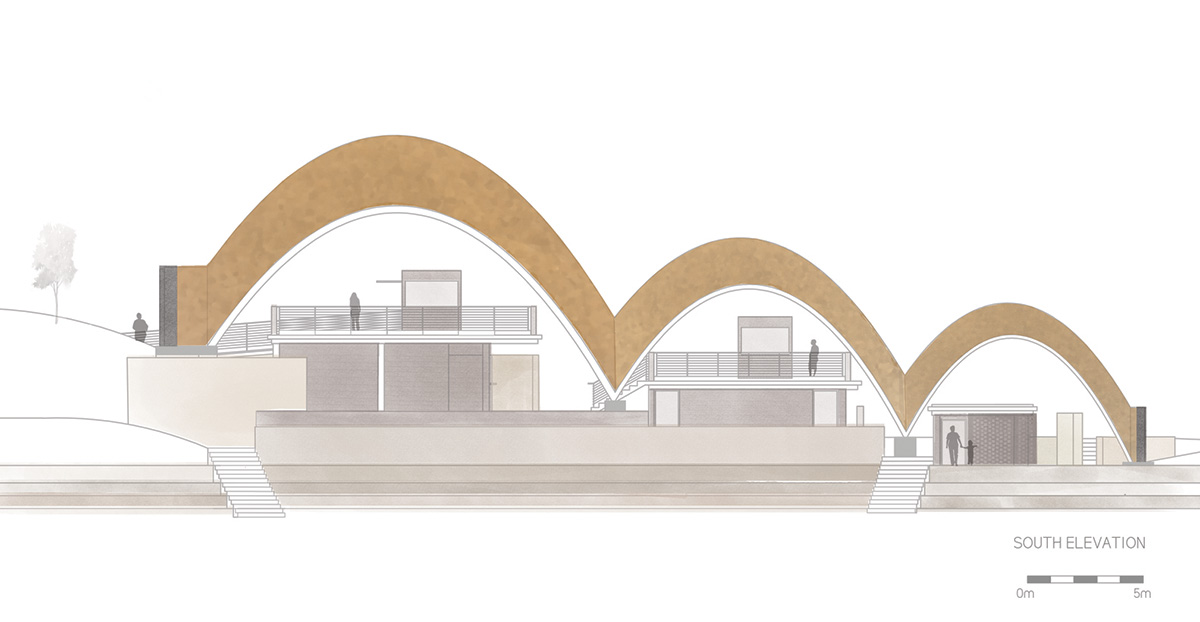
South elevation
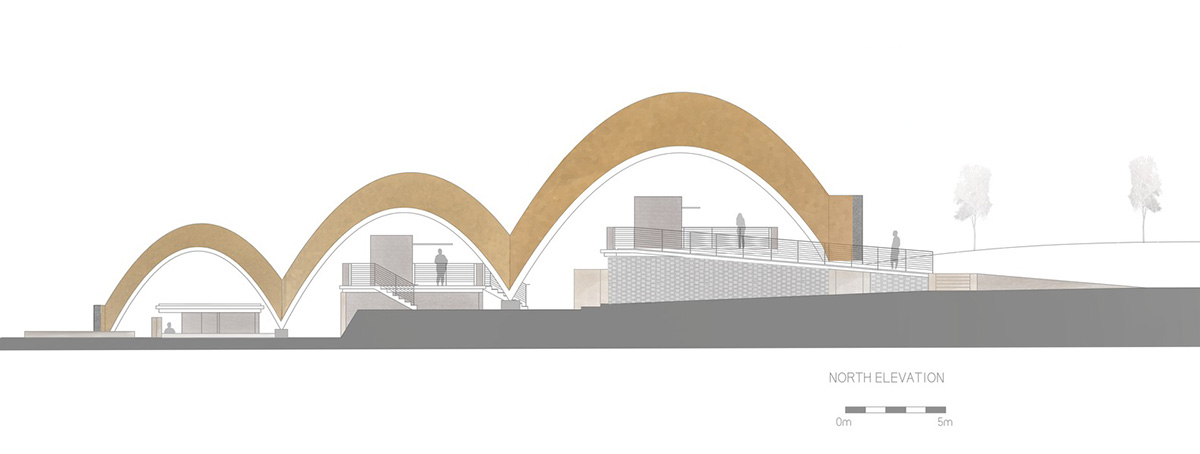
North elevation
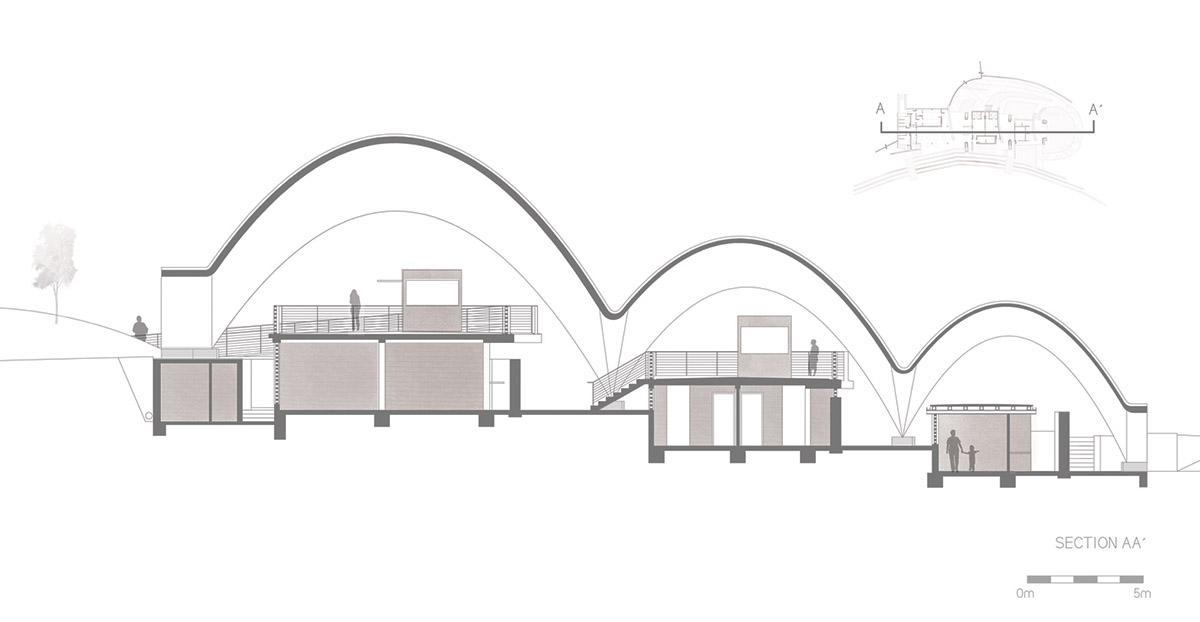
Section A
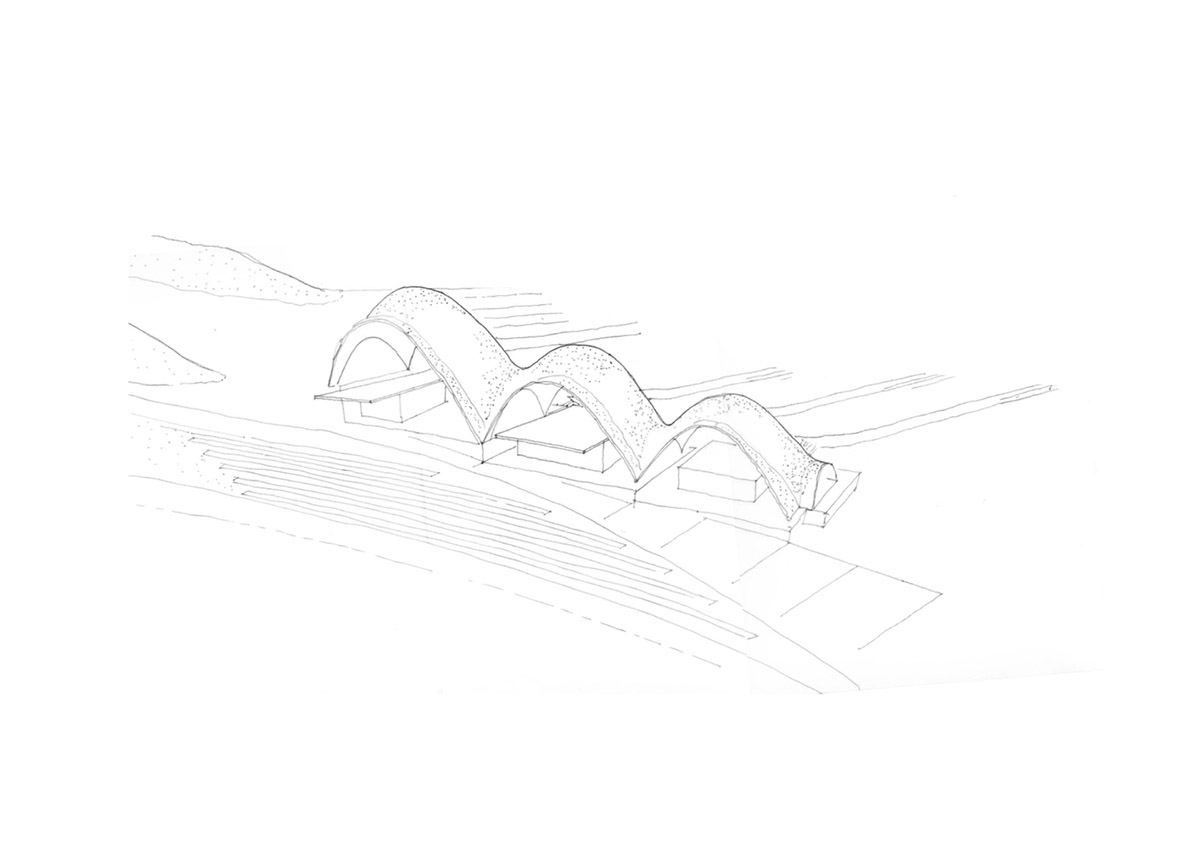
3D sketch

Roof plan sketch

Sketch
All images © Light Earth Designs unless otherwise stated
> via Light Earth Designs
